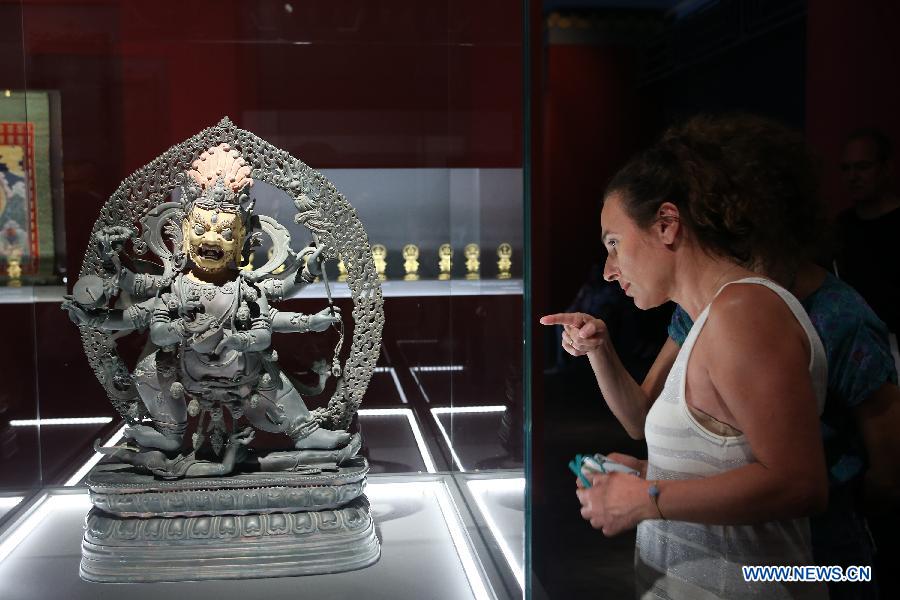Exquisite artefacts from Beijing's Forbidden City to be exhibited at Athens museum
A rare exhibition on China's Emperor Qianlong is going on display at the Acropolis Museum in Athens, with exquisite artefacts that will be presented for the first time to the public from Sept. 15 to Feb. 14, 2019.
A rare exhibition on China's Emperor Qianlong is going on display at the Acropolis Museum in Athens, with exquisite artefacts that will be presented for the first time to the public from Sept. 15 to Feb. 14, 2019, the museum said on Wednesday.
A bronze statuette of Mahakala is seen at the exhibition titled "From the Forbidden City: The imperial apartments of Qianlong" at the Acropolis Museum in Athens, Greece, on Sept. 12, 2018. A rare exhibition on China's Emperor Qianlong is going on display at the Acropolis Museum, with exquisite artifacts that will be presented for the first time to the public from Sept. 15 to Feb. 14, 2019, the museum said on Wednesday. [Photo/Xinhua]
The exhibition, under the title "From the Forbidden City: The imperial apartments of Qianlong", is organized by the Acropolis Museum in cooperation with the Palace Museum of Beijing.
It boasts 154 exquisite works of art, ceremonial robes, furniture and functional objects from the emperor's private apartments at the Palace of Many Splendors (Chonghua Gong).
Through this exhibition, which is developed in five sections, is recreated the life of the emperor, from his youth as prince to his maturity as the emperor.
One of the most renowned emperors in Chinese history, Qianlong of the Qing Dynasty (1644-1911) ruled for over 60 years.
"It is a great opportunity to present to the public for the first time locked and dusted rooms of the Great Emperor of China Qianlong which are not open even to the Chinese audience," the president of the Acropolis Museum Dimitrios Pandermalis said during a press conference.
"With these exhibits, we want all visitors, Greek and foreigners, to know the life of the emperor. In the exhibition is mirrored the life of the emperor from his childhood to the years of the accession to the power," said Li Xiaocheng, deputy director of the Palace Museum in Beijing.
Li said the exhibition is also to "open a window for the world to understand Chinese history and culture".


